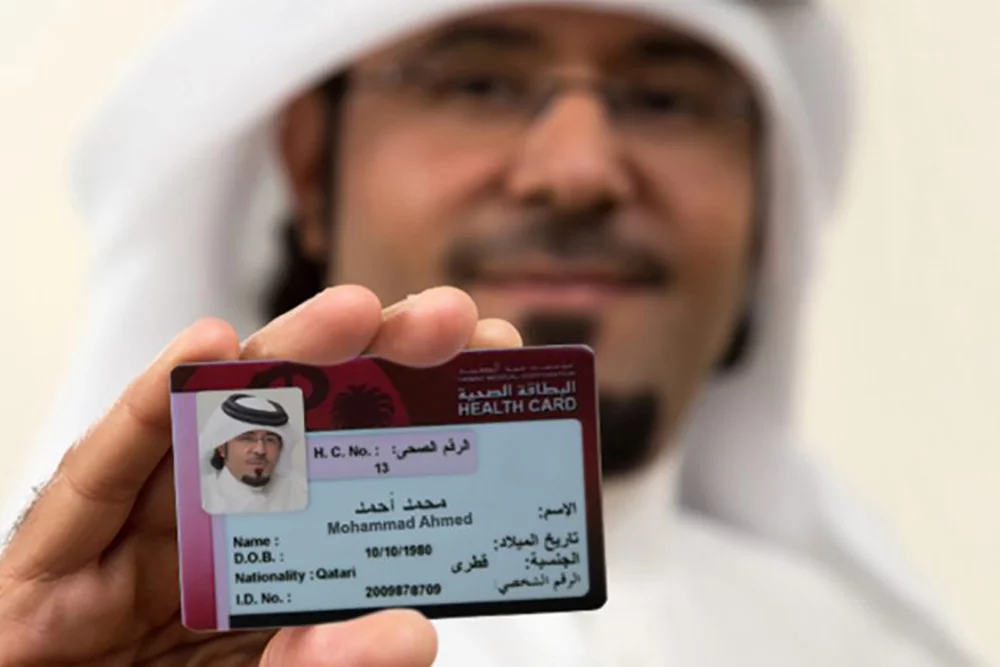From newborn screening campaigns to top-notch medical facilities to lactation clinics, having a baby in Qatar can often look and feel just like having one in your home country.
For expats looking to start or expand their family, Qatar is a good choice, and moms-to-be have a lot of care options on the peninsula. With plenty of high-quality clinics and hospitals, generally staffed by expats, there is a lot about the medical scene in Qatar that will be familiar. If you are looking for care during your pregnancy there, this helpful article will provide important information about maternity care.
The guide includes the following sections:
Cigna Global
Expecting a baby in Qatar? Enjoy peace of mind with Cigna Global’s private healthcare. Gain access to top maternity care, pediatricians, specialists, and a global network tailor-made for your growing family. Start your parenting journey with confidence – Cigna Global has you covered.
Pregnancy and childbirth in Qatar
Maternal services in Qatar range in quality but, with the sheer number of hospitals and clinics in Qatar, you will be able to find one you are happy with. Pregnancy is a hospital affair here, so you will choose your OB/GYN early on, and stay with them for the entire process. Home births are illegal and, although there are midwives, they are usually attached or a part of a hospital. Qatar’s fertility rate (1.9 births per woman), combined with the high concentration of hospitals and clinics, makes for a high patient to doctor ratio and generally short waiting lines.

A note of caution: it is a criminal offense to be pregnant and single in Qatar. Sadly, 100 expat women are arrested and jailed every year for this offense – so be proceed with caution if you and your partner are discussing getting a divorce in Qatar.
Accessing maternity services in Qatar
Expats looking to access maternity services should begin by reviewing their private insurance to see what, and which, hospitals offer coverage. There are plenty of public and private hospitals in Qatar, and the doctor-to-patient ratio is high.
So, when you are in the early stages of your pregnancy, be sure to find a doctor or clinic that you feel comfortable with and that accepts your insurance. The following is a list of health insurance providers operating in Qatar:
Insurance for maternity costs in Qatar
Public insurance is free and provided to Qatari citizens. However, although expats can access public hospitals (for a fee), lines and bureaucracy tend to be shorter in private hospitals.
Therefore, if you are having a baby in Qatar, you might want to consider taking out private health insurance. This is also advisable because, if you get an international plan, it would also include coverage if you travel for leisure or to your home country.
The Qatar Health Card
For the moments when you have to use a public clinic or hospital, it is strongly advisable to get a Health Card as soon as you can. For 100 QAR, you gain access to subsidized doctor’s visits, treatments, and medication in public clinics; it pays for itself very quickly. You can easily apply for one at any Hamad Medical Corporation clinic or post office. For information about what you will need, check out this resource.

Pregnancy testing in Qatar
You can buy pregnancy testing kits in all pharmacies and many supermarkets in Qatar. Prices range from 30 to 100 QAR and you won’t be asked any questions or to provide ID. If you would like to double-check, you can always make an appointment with your doctor for confirmation. Please keep in mind that it is illegal to be pregnant and unmarried in Qatar so don’t go to a doctor if you are single and possibly pregnant.
Prenatal care in Qatar
Once you are sure that you are pregnant, you should decide if you would like to give birth at a private or public hospital. Private hospitals have more staff per patient but are more expensive. Public hospitals are cheaper and more equipped to handle high-risk pregnancies, however, they are busier and have more red tape. Your best-case scenario is to find a private doctor you like who has privileges to operate or deliver in a public hospital. All private and public hospitals have a maternity ward, so check what your insurance covers and seek recommendations from expat friends. Visit a few hospitals before settling on your final choice.
Antenatal appointments
If you choose a public hospital, you will see whichever OB/GYN is available during your appointments and delivery. Private hospitals allow you to choose a particular staff member. The frequency of appointments and tests, and the specifics of your birthing plan, will depend on your hospital and your conversations with your doctor. Be sure to bring your marriage certificate and ID to your first appointment. If, in the course of your pregnancy, your doctor encounters complications, they will refer you to the necessary specialists.
Doulas
If you are having a baby in Qatar and looking to use a doula during your pregnancy, be sure to ask around for recommendations. Also, be sure to check whether your hospital allows doulas to be present for the delivery, as some do not allow doulas (or husbands for public hospitals) to be in the room. Facebook groups, such as Positive Birth Doha, are a good place to share resources.
Scans, tests, and checks
How frequently you will have appointments depends on your doctor and your hospital, however, you can expect a few things to be uniform. You should have your weight, blood pressure, and urinalysis done at each appointment. Between 11 and 13 weeks you will have your first-trimester ultrasound to check the viability and basic structure of the fetus. Between 18 and 20 weeks, you will have your big ultrasound to check that the fetus is growing well. Your doctor will keep you updated on your progress and can answer any of your questions.

Antenatal classes
If you are interested in antenatal classes, begin by checking if your hospital offers any (because many do), and ask around in your expat circles for recommendations. Your insurance may or may not cover the cost, so be sure to read up on your policy as well.
For an online antenatal option, check out Abudo Maternity Program.
Giving birth in Qatar
By the time your delivery day comes around, you should have already confirmed your birthing plan with your doctor. This should include who will be in the room, whether you will be having a natural or C-Section birth, as well as which hospital you should go to, and when. You should have agreed on things like who will be in the room and how long you are likely to stay after the birth. If you give birth in a public hospital, you are likely to be discharged after a day. In private hospitals, however, women usually stay around two to three days for natural births. Be sure that everyone in the room knows your pain relief preference; various options, such as epidural, morphine, Entonox, among others, are available.
Be sure to bring your Qatar ID, your health insurance card, your Health Card (if you have one), your passport, and your marriage certificate, Also, pack toiletries for you and your baby, as well as several changes of clothes.
Postnatal care in Qatar
Your postnatal care routine will depend on what you and your doctor have discussed, so it’s best to speak with them and follow their advice. Generally, home health visits are not mandatory, and check-ups will take place at a hospital or clinic. As a country, Qatar is aggressively pursuing a nationwide campaign of newborn screening for congenital disorders. Screening is done between two and three days after birth, so be sure you consent to that. It is free of charge.
Vaccinations
Children in Qatar get vaccinated against 12 diseases, including tuberculosis, hepatitis B, diphtheria, and tetanus. Your doctor will help you stay on schedule for your child’s vaccines. There is even an interactive online portal to help you keep track of dates.
Nurseries and childcare
If you would like to place your child in a nursery, you have lots of options in Qatar. Ask fellow expats for recommendations based on what you need in a nursery and then visit a few before deciding. And, if you still need more information, check out this comprehensive nursery guide from Doha Mums, a social group in Qatar.
Breastfeeding
Breastfeeding is widely promoted in Qatar. If you are looking for some breastfeeding support, a good place to start looking is with doula services, as they often offer post-natal support as well. Many hospitals offer lactation clinics for new mothers, so be sure to call around to inquire.

Registering a birth in Qatar
Getting a birth certificate
Babies born in Qatar to non-Qatari parents are not entitled to Qatari citizenship. So, to register your child, you will need to get a birth certificate and take it to your embassy to get your child a passport. All birth registrations take place at Women’s Hospital, no matter where the child was born. You will have to fill out some paperwork and pay a small fee, but the good news is that the birth certificate will usually be issued within the week. Make sure to bring:
- A copy of your baby’s vaccination card
- Both parents’ passports, and copies
- Both parents’ residence permits, and copies
- Parents’ marriage certificate, and copies
The birth certificate will be in Arabic, so you will need to translate it into whatever language your embassy requires. Make sure to apply for a passport as soon as possible.
Your baby’s residence permit
Once your baby has a passport, you can apply for a residence permit for them. This has to be completed within two months of their birth, so don’t delay. You can do this online, through the government Hukoomi website, and sometimes your company will help facilitate the process. This is what you will need:
- Your baby’s passport
- Your baby’s birth certificate
- Parents’ passports and residence permits
- Your sponsor’s ID
Will your child get Qatari citizenship?
Unfortunately, no. If your child is born to non-Qatari parents, they will not be able to get Qatari citizenship.
Parental leave in Qatar
If a mother has worked for a company for a full year, she is entitled to 50 days of paid maternity leave. At least 35 of those days must be taken after the birth, before returning to work. If need be, mothers can also request additional unpaid leave, but this would be in consultation with their employer. New mothers are entitled to an hour of nursing time during every working day for the first year, and employers are banned from firing an employee while she is on maternity leave.
There is no law mandating paternal leave, but most companies will offer new fathers three to five paid days off. As soon as you are comfortable, you should begin discussions with your employer about your maternity leave plan.




